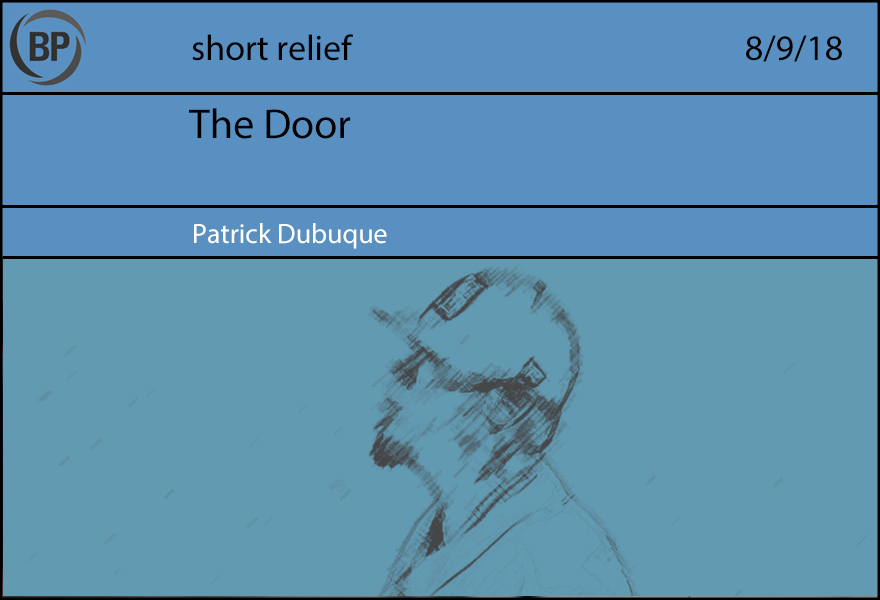
At some point, I stopped locking the front door.
Death is not the only disease. It’s the obvious one, though, especially at times like Tuesday night. Felix Hernandez threw the change-up, Robinson Chirinos reached out his wrist to meet it, and then both men winced in pain. One man healed.
The metaphor is unavoidable, as he stared skyward, waiting for another ball to land. The glassy stare of the mortally wounded, the unspoken sigh of parted lips, the sunlight of summer now cast in beams through open windows, ammonia and formaldehyde, wheelchairs and magazines and tile and recirculated air. Memories forcibly overwriting themselves, creasing lines into the youthful faces of happier times, the worry and the fatigue and the bitterness of waiting. The insipidness, the pedanticism of dying.
But everything is dying, not just pitching in one’s thirties. Like when I stopped locking the front door. It just happened one day; I came home and took my shoes off, put my briefcase down, did everything the same as any other day, except the door. We had small children, the latch was soft. We live on an arterial. It was a big deal. My wife told me to lock the door, I told myself to lock the door, devised some mnemonic trick, but the next day, or a couple days after, I would just… forget.
My wife would tell me that the door was unlocked again and I would snarl the same way that Felix snarled when his right arm forgot how to throw change-ups, as if I’d struck her on the wrist instead of the other way around. At that moment you realize: You can’t remember not to forget something. You forget it or you don’t. You are entirely your own muscle memory. As much as you can train yourself, as much as you study and learn and think, you are what you do when you aren’t thinking. The real you comes out.
At some point, I started locking the front door again. I healed. There was no trick, no string around the finger; something else just changed, which changed something else, which changed me. My breaking pitch, one of them, found the plate again. All you can do is hope it does.

I sat on the bed and stared. Jesuline was the sexiest woman I’d ever seen; Nefertiti in tight jeans and mirror shades. She took off her denim jacket to expose a white tank top and a Glock 19. She pulled it from its holster and asked, “Do you mind?” Not at all, I said, and she laid it on the bed. “Where I live, I have to protect myself.”
She washed her hands and put on a fresh top. Gun returned to holster, she put her jacket back on. How did she do it? I was wearing as little as possible in the sweltering tropical heat. “Come on,” she said. “I have a Jeep. It has air conditioning.” We parked near the soccer field and chatted the afternoon away as only young women can, engine running, A/C blowing, stories flying. I was absorbed by her, oblivious to the rural life revolving around us. But she was ever watchful.
Jesuline’s mother gave her away when she was four. She became a house slave in Port-au-Prince, but when she turned seven she ran away and found a construction site that was hiring children. They were only hiring boys, she said. Pride filled her voice. “I became a boy. I hauled buckets of sand all day, and at night I slept under a car.”
Haiti flooded with missionaries after the 2010 earthquake, and a Christian family found Jesuline and took her home to Indianapolis. They gave her a childhood. They noticed her and loved her and raised her to be among the world. One day they took her to Wabash College to visit their oldest son and Jesuline saw a student-staff baseball game in progress. She wanted to play, and her American mother made it happen. Over the angry objections of the students and the genteel harrumphing of the faculty, she got in the game.
She had always wanted to guard the plate, so she was excited when they put her at catcher. They figured she couldn’t do a lot of damage there. But then somebody hit a deep fly. It was caught, but a guy was tagging up from second and coming around. “Girl at the plate so he was coming in,” she said. “They threw me the ball. I was right out in front of the plate when I caught it and swiped, and that kid was out. He was shocked. A girl got him out at the plate. As if boys know anything about girls,” she added, with obvious scorn.
Now an RN, she had raised enough money to buy ten acres of land northwest of Port-au-Prince, where she lived alone with the Glock for protection. Slowly but surely, she was building an orphanage, one donation at a time. “I’ll teach the children hardball,” she said. “Come with me.” We looked at each other, waiting. Life with her would be a riot of power and glory. But I only muttered something about heading home.
Thank you for reading
This is a free article. If you enjoyed it, consider subscribing to Baseball Prospectus. Subscriptions support ongoing public baseball research and analysis in an increasingly proprietary environment.
Subscribe now